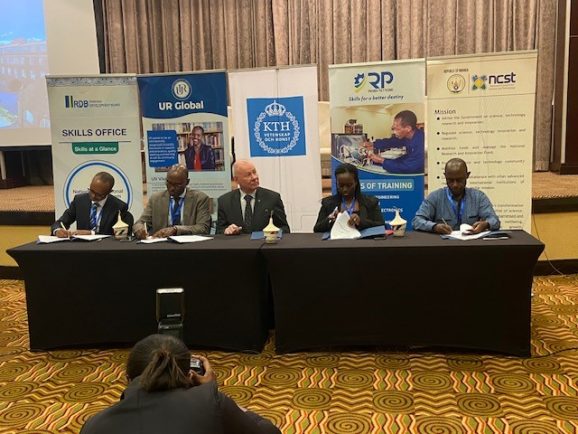This challenge-based approach is the main focus of the Global Development Hub, GDH, which began in 2017 in association with four African universities: University of Rwanda, University of Dar es Salaam (Tanzania), Strathmore University (Kenya) and Botho University (Botswana). Together, we have run several courses, held student exchanges and also teacher training. This also makes the GDH a focal point for our presence on the African continent.

In addition, last week we were able to extend our collaboration with the University of Rwanda by signing a Memorandum of Understanding, or MoU. The MoU also includes other parties in Rwanda and a broader portfolio of activities than before, including participation in research and innovation.
Rwanda is a small country in East Africa that has developed rapidly over the past 20 years, and is in different ways a fulcrum for innovation activities, enterprise and societal development in its region. The university has also received ever-better resources for its activities in recent decades, so extending our partnership with it is the right move strategically.
The challenge-driven education model is, as mentioned, pivotal to work within the GDH, but it can of course also be used for activities on campus in Stockholm.
The basic idea is the same: to find potential solutions to societal challenges by combining the challenge in education with innovative solutions. One example is OpenLab, which is run by KTH alongside several higher education institutions in the region, the City of Stockholm and Region Stockholm. It presents an opportunity for our partners to place their concrete challenges in the course and project environment provided by OpenLab.
